MICHIGAN COLLEGE ADVISING CORPS (MCAC)
About MCAC
The Michigan College Advising Corps (MCAC) is a diverse group of recent University of Michigan graduates working full-time as college advisers in under-served high schools throughout Michigan. Advisers help students navigate every aspect of the college-going process and identify their personal best fit among various post-secondary options.
Additionally, they work with principals, counselors, teachers, and other college access advocates to foster a college-going culture in their school and community. Through this work, advisers contribute to the mission of the national College Advising Corps (CAC): to increase the number of low-income, first-generation, and underrepresented students entering and completing higher education.

Michael Turner
MCAC Program Director- (734) 763-2310
- [email protected]
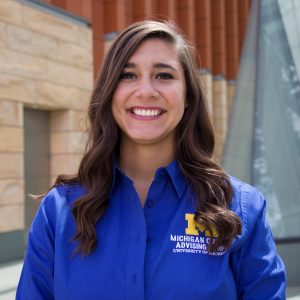
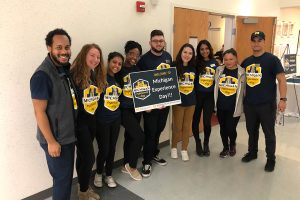
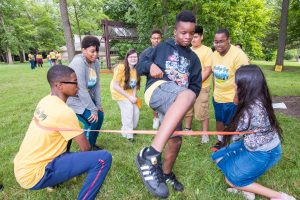
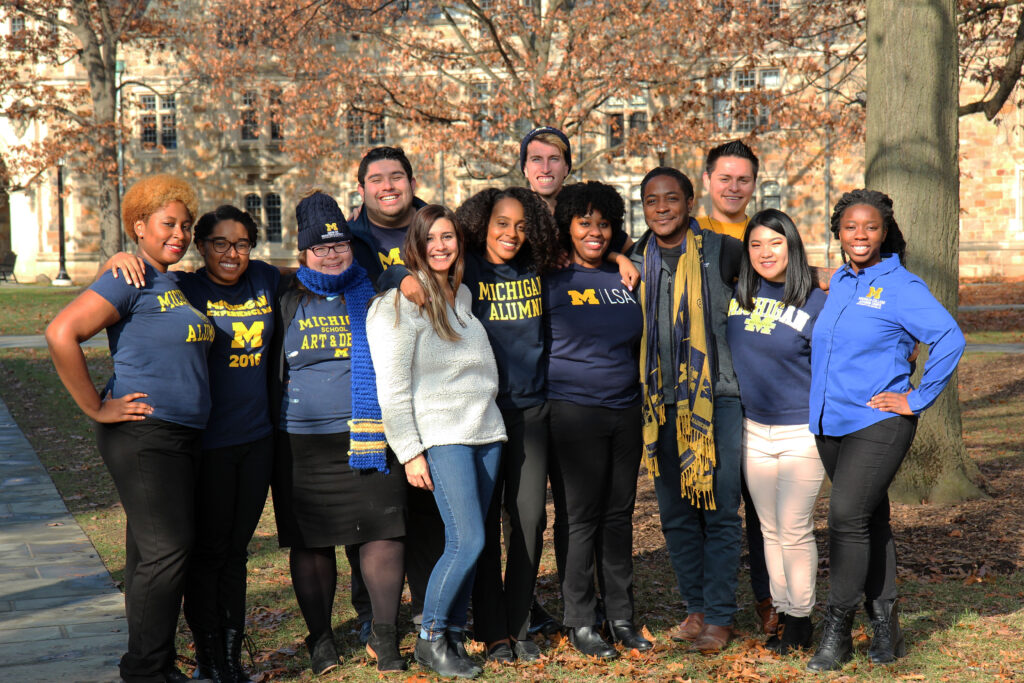
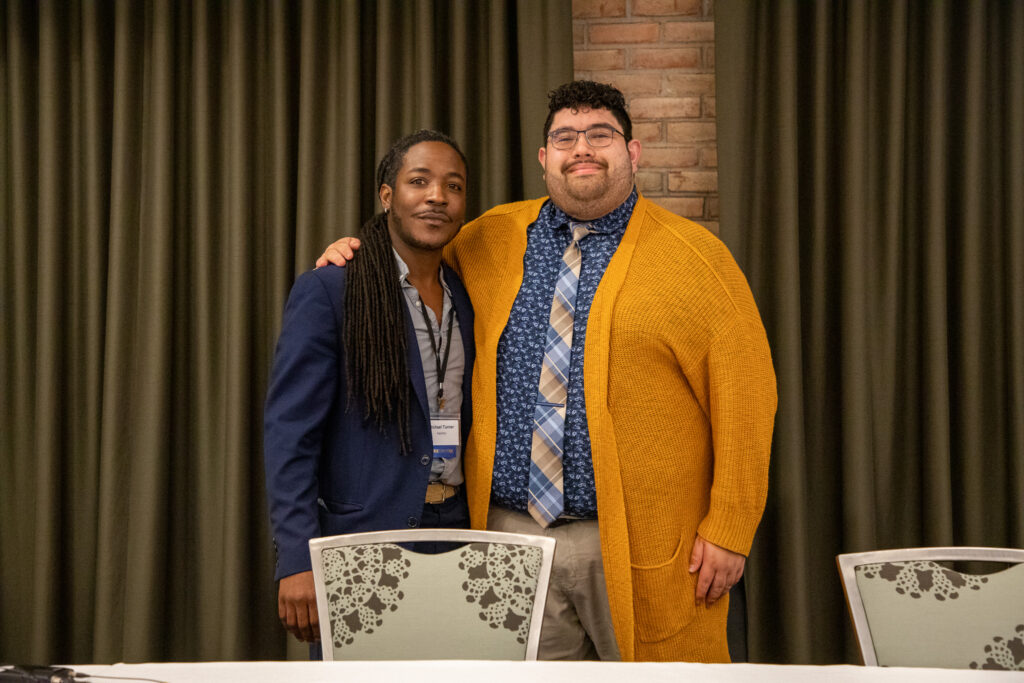

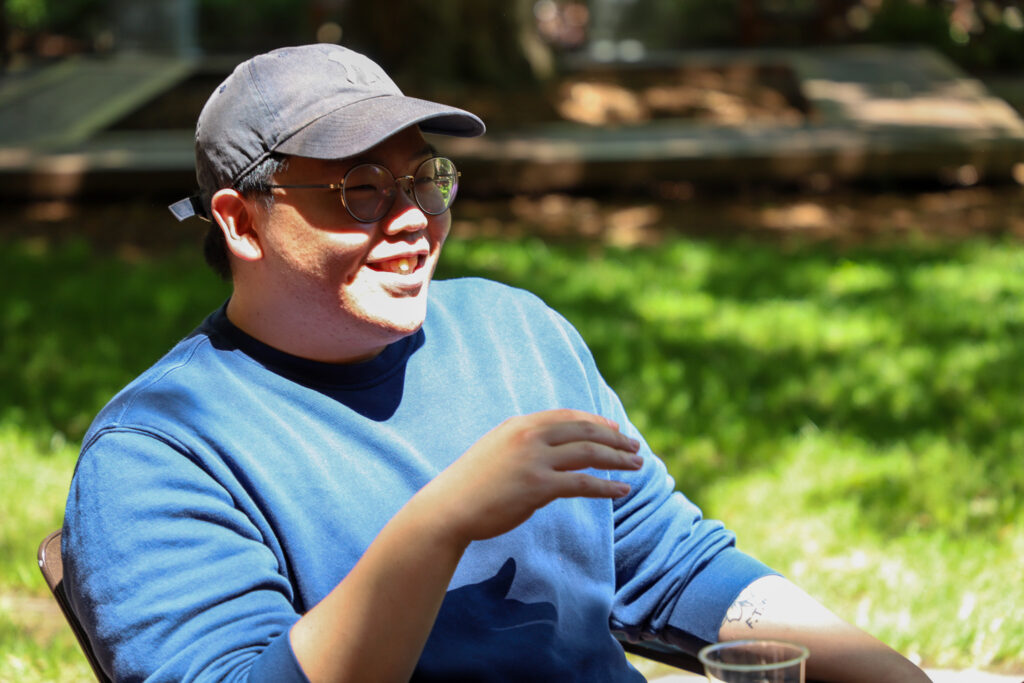

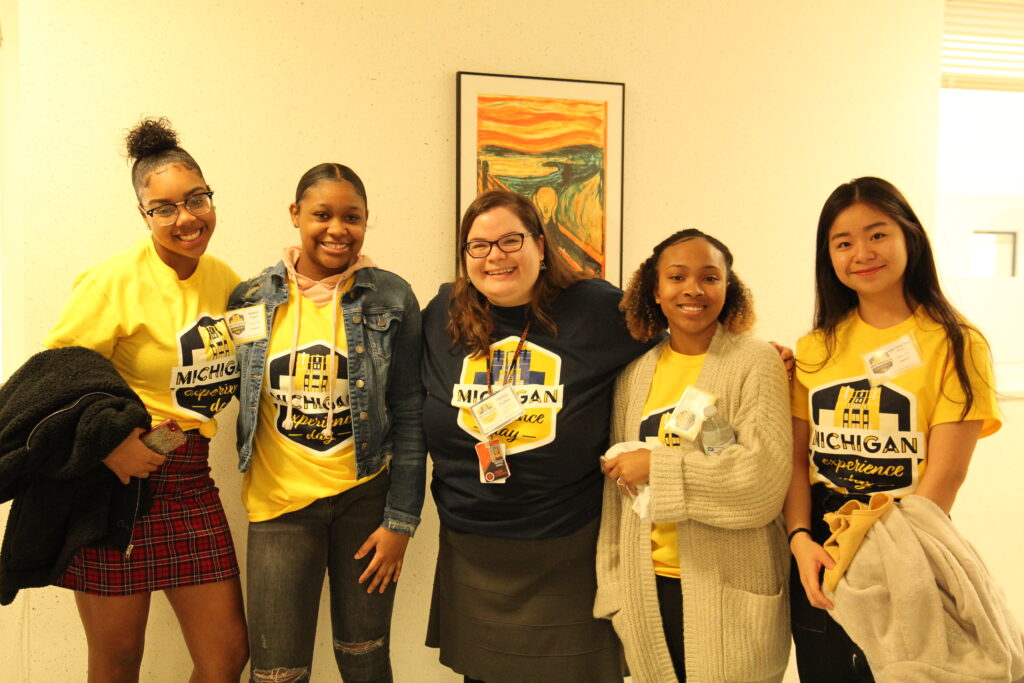
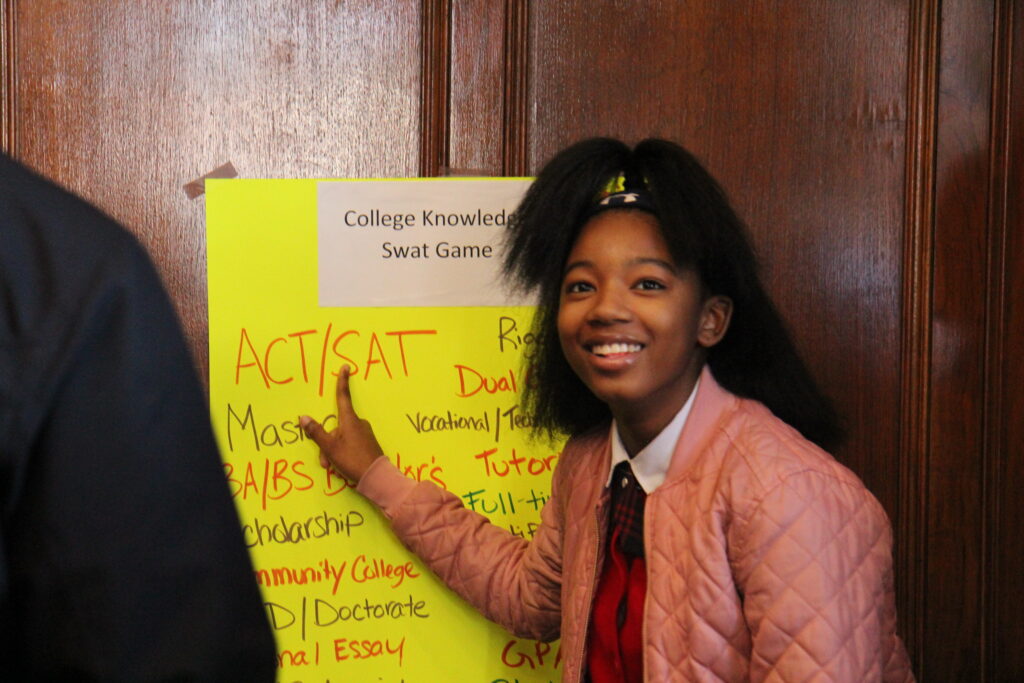
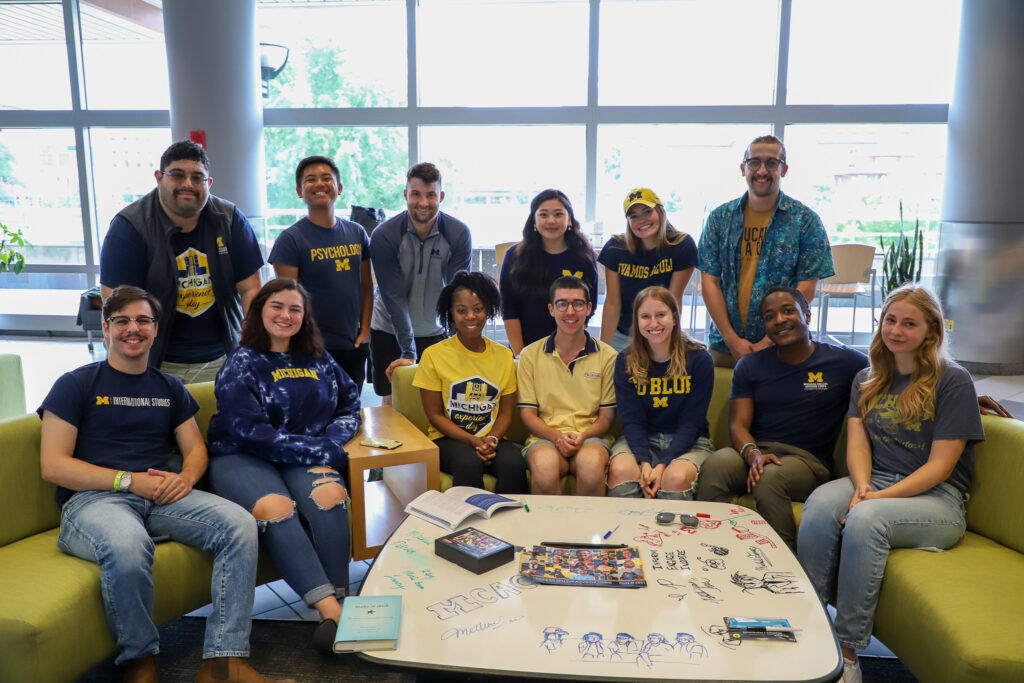
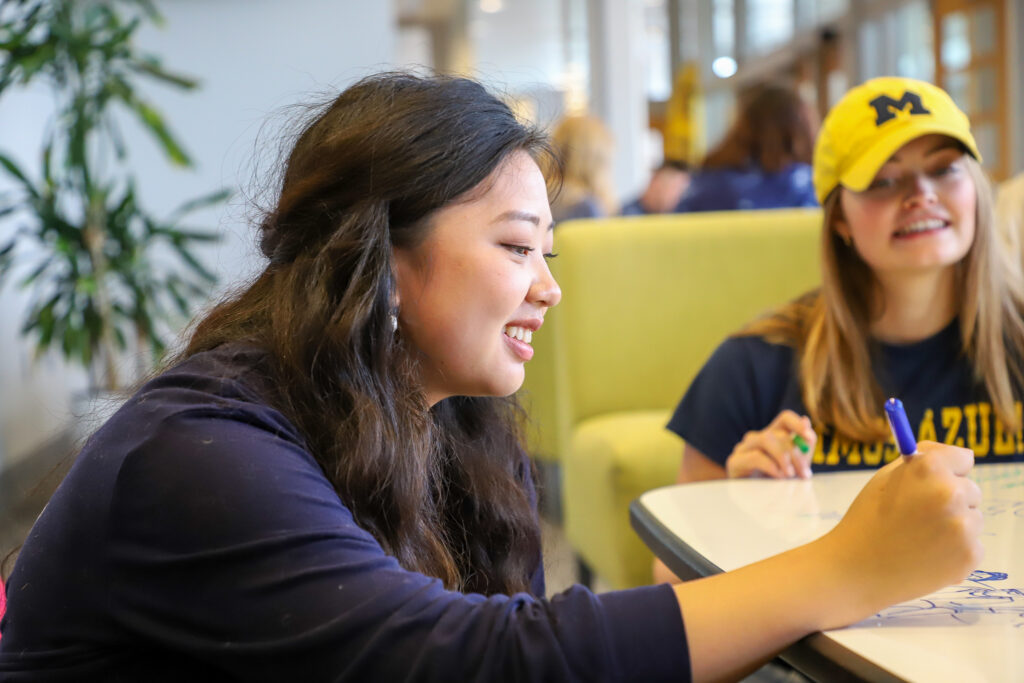

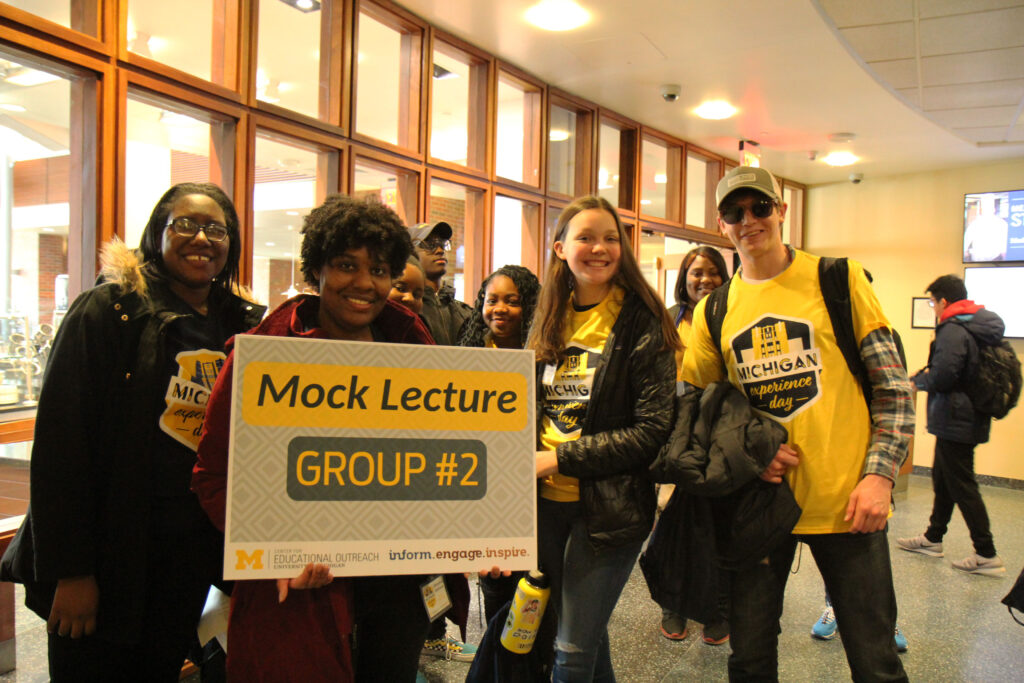
A Deeper look into MCAC
Below are opportunities for engagement that CEO can support and/or facilitate. These are customizable experiences that can be tailored to fit the needs and interests of your students. Experiences can be facilitated virtually or in-person when visiting the U-M campus.
Our advisers are dynamic members of their partner high schools whose responsibilities may differ from site-to-site to fit the needs of their students and staff. The following list details the duties an adviser might be expected to perform:
- Provide 1-on-1, near-peer mentoring to seniors and other students to support them in reaching their post-secondary goals.
- Assist in the completion of college applications and essays, SAT and ACT registration, FAFSA submission, and scholarship applications.
- Facilitate presentations and workshops on the importance of college, the college-planning timeline, financial aid, SAT preparation, etc.
- Engage parents and families in the college-going process through events like Senior Parent Night or FAFSA Night, as well as through individual meetings by appointment.
- Host visits from college admissions representatives for presentations or college fairs.
- Coordinate campus visits to colleges across the state of Michigan and beyond.
- Execute large-scale events, often tied to statewide initiatives such as Michigan College Month, the College Cash Campaign, and College Decision Day.
- Connect students with high school and college staff to facilitate their access to resources like academic advising, psychological services, financial aid, etc.
- Strengthen existing relationships with teachers and staff at the partner high school, college representatives, scholarship donors, and other regional college-access advocates or programs.
- Document and track data on student interactions and deliverables tied to the College Advising Corps key performance indicators in the GRACE case management system.
- Introduce students and staff to new tech tools like ECoach, College Made, and the Wolverine Express 2.0 to increase student access to pre-college information.
MCAC advisers commit to a year of service beginning early July through June of the following year, throughout which they will work a total of 1,700 hours through service in their partner high school, training, and volunteer opportunities. This year of services includes:
- A mandatory four-week training session on the U-M campus during the summer (with a $1,200 stipend)
- Monthly in-service training at the U-M Center for Educational Outreach
- Professional development opportunities across the state of Michigan—such as Promoting the Publics, the Pre-College and Youth Outreach Conference, and the Michigan College Access Network Conference
- A week-long summit held annually by the College Advising Corps for its advisers from across the nation.
- Weekly remote trainings with their MCAC team
- A Bachelor’s degree from the University of Michigan, Ann Arbor, with a graduation date no earlier than May 2020.
- The proven ability to work effectively with youth, including those from diverse backgrounds.
- Previous experience demonstrating strong leadership abilities and collaboration with others to achieve shared goals.
- The ability to work independently and analytically, including exercising discretion and good judgment.
- Excellent verbal and written communication skills, as well as proficiency in basic computer skills.
- The ability to manage multiple projects using strong planning and organizational skills.
- Prior work entering, manipulating, or analyzing data.
- A high level of energy, creativity, and initiative in developing and executing new programs.
- The ability to assume responsibility for large- and small-scale projects, as in program development or management.
- Successfully pass federal and state background screening.
Advisers are AmeriCorps members:
- Joining AmeriCorps is a way to put your idealism into action. As an AmeriCorps member, you can help make the world a better place through your work engaging with students, families, and staff at your partner high school.
- AmeriCorps is a real-life education and work experience wrapped into one. As a member, you will learn teamwork, leadership, responsibility and other essential skills that will help you for the rest of your life; you will also gain the personal satisfaction of taking on challenges and seeing results.
- Pending completion of your 1,700 hours of service and completion of your term, you will also receive a Segal AmeriCorps Education Award of $6,495 to help pay for college, graduate school, or vocational training, or to repay student loans.
- Health insurance is provided through Relation Insurance at no cost to the adviser if not already covered by an alternative plan.
- Advisers will receive on-going professional development opportunities at the community, state, and national level.
- Advisers will become connected with a multitude of colleges and universities across the state and nation allowing networking opportunities for graduate school admissions.
- Advisers will receive intensive training in all aspects of college access, including admissions, financial aid, housing, academic advising, etc.
- Advisers will gain skills in various areas to build their résumé, including counseling, building professional relationships, networking with various partners, marketing and communication, time management, event planning, data tracking, etc.
In 2004, the University of Virginia piloted a project that placed recent college graduates in under-served high schools in the Charlottesville area as “college guides” to serve as a resource to assist low-income, first-generation and underrepresented high school students navigate the college-going process. In 2007, the project received a large grant from the Jack Kent Cooke Foundation, and the College Advising Corps was established on the campus of the University of North Carolina at Chapel Hill. With increased funding from sources such as the Bill & Melinda Gates Foundation, Lumina Foundation, the Kresge Foundation, and Bank of America, the program has grown to employ over 800 advisers under 31 college and university partner programs that serve more than 240,000 students in approximately 780 high schools in 17 states.
The Michigan College Advising Corps began in 2009 as one of the Center for Educational Outreach’s (CEO) direct-service initiatives. Each of MCAC’s 16 partner high schools has a college adviser who works on-site daily, as well as access to other U-M resources and CEO services such as faculty visits from the Wolverine Express, personalized campus visits led by CASA staff, the Watson A. Young need-based scholarship for summer opportunities, and a pre-college version of the Center for Academic Innovations’s ECoach tool. Likewise, MCAC partners with external college access organizations such as the Michigan College Access Network and AdviseMI, the Michigan State University College Advising Corps, and other Local College Access Networks to expand college access across the state. Through this work, MCAC strives to inform students about their right to a college education, engage families in the college-going process, and inspire communities to continue strengthening their college-going culture.
MCAC advisers are located in high schools throughout the state of Michigan, including:
- Battle Creek Central High School, Battle Creek
- Chandler Park Academy, Harper Woods
- Eastern High School, Lansing
- Flint Southwestern Classical Academy, Flint
- Holland High School, Holland
- Jackson High School, Jackson
- Jalen Rose Leadership Academy, Detroit
- J.W. Sexton High School, Lansing
- Ottawa Hills High School, Grand Rapids
- Pontiac High School, Pontiac
- Southfield High School for the Arts & Technology, Southfield
- The School at Marygrove, Detroit
- University High School Academy, Lathrup Village
- Western International High School, Detroit
- Ypsilanti Community High School, Ypsilanti
Following in the tradition of AmeriCorps and Teach for America, MCAC recruits and trains advisers to work for up to two years following the completion of their undergraduate degree at the University of Michigan. Under this near-peer model, MCAC advisers can complement the skills developed during training with their own experiences navigating the college setting to more quickly establish rapport with students and better advocate for their long-term goals. This proves critical as advisers assist seniors not only in deciding which post-secondary goals to pursue, but also in identifying the academic, social, and financial resources needed to make these goals attainable and sustainable realities.
Within the school setting, MCAC advisers supplement professional counseling staff, serving as students’ advocates, mentors, and liaisons. Advisers facilitate timely, large-scale programming throughout the year to walk students through college-going processes—such as college applications, FAFSA submission, and scholarships—as well as 1-on-1 meetings with students and families to ensure that post-secondary decisions are made with all parties in mind. They also serve as critical pathfinders, connecting students with relevant support staff at the high school or college level to provide each student with equitable access to the resources they need in their community and beyond.
Overall, seniors at our partner high schools who meet with their MCAC adviser are:
- 19% more likely to apply to at least one college
- 33% more likely to apply to three or more colleges
- 24% more likely to apply for a scholarship
- 33% more likely to submit the FAFSA
Center for Educational Outreach
- 1214 S. University Ave, Ann Arbor, MI 48104
- [email protected] | (734) 647-1402
- Supported by the Office of Diversity, Equity & Inclusion
